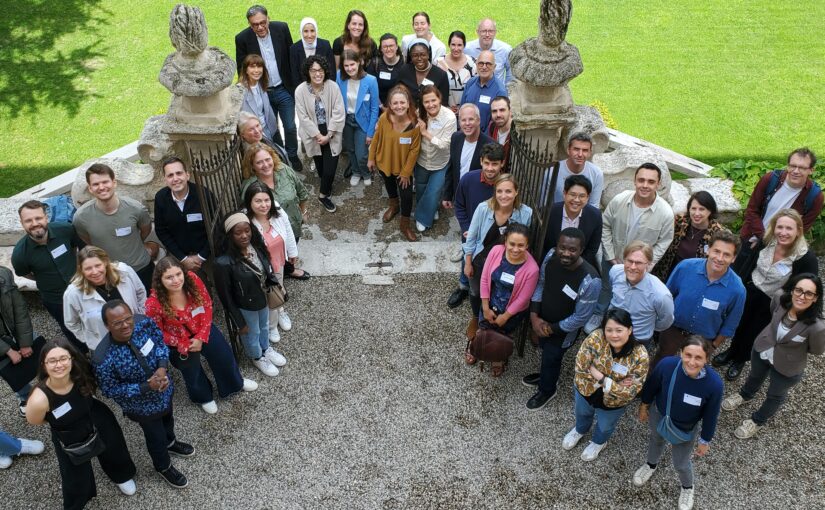Second MPX-RESPONSE Annual Meeting – Verona, May 2025

The MPX-RESPONSE consortium convened in the beautiful city of Verona on May 5th and 6th, 2025, for its second Annual Meeting. Hosted in a stunning venue, the event provided a dynamic and inspiring setting for productive discussions, critical reflections, and strategic planning. It marked a key moment to share early results and assess progress made since the project’s launch.
UNITY Study Nearing Completion
A central focus of the meeting was the upcoming results of the UNITY study, now approaching completion. Conducted in a rapidly evolving scientific context, UNITY stands at a crossroads following major developments in the field. Notably, the PALM007 study recently reported that tecovirimat did not demonstrate efficacy in resolving mpox-related skin lesions, and the STOMP trial was discontinued due to futility. This findings prompted robust discussion among consortium members regarding the overall methodology of these (tecovirmat) studies – particularly the suitability of the primary endpoint, the dosing strategy, and the broader implications for evaluating tecovirimat’s efficacy. Although the study designs are quite similar, the populations enrolled differ significantly.
Looking ahead, attention turned to the planned individual patient-level meta-analysis (IPD-MA), which will aggregate data from multiple studies, including PLATINUM, EPOXI, UNITY, and STOMP. This collaborative approach aims to provide more nuanced insights into treatment effects across different patient subgroups—especially severely immunocompromised individuals, who represent a significant portion of the UNITY cohort.
Another key area of discussion was tecovirimat’s potential impact on viral load and its role in reducing transmission—an essential consideration for outbreak response and public health planning. Further pharmacological and immunological analyses are scheduled to begin in Q4 2025 to better understand these dynamics.
Next Steps for MOSAIC and status of MOSA
The consortium also discussed the newly planned sub-study of MOSAIC, which will investigate the long-term durability of the immune response in infected individuals. This is particularly important for advancing knowledge of a disease that, while historically an endemic zoonosis in Africa, is now emerging as a global sexually transmitted infection (STI).
Progress and future directions for the MOSA study—our African trial evaluating brincidofovir—were also shared, reinforcing the consortium’s commitment to research in diverse epidemiological settings.
Scientific Highlights and Guest Contributions
The meeting featured several thought-provoking presentations from guest experts, including:
- Dr. Liem Binh Luong (Associate Professor, AP-HP), who provided a global overview of current mpox vaccination options and strategies
- Dr. Eddy Lusamaki (IRD), who presented recent genomic surveillance data on Clade I mpox from the Democratic Republic of Congo, emphasizing the need for continued genomic monitoring in regions where the virus remains endemic.
Overall, the second Annual Meeting served as a critical juncture for strategic alignment, knowledge exchange, and renewed collaboration as MPX-RESPONSE advances toward its next milestones.
